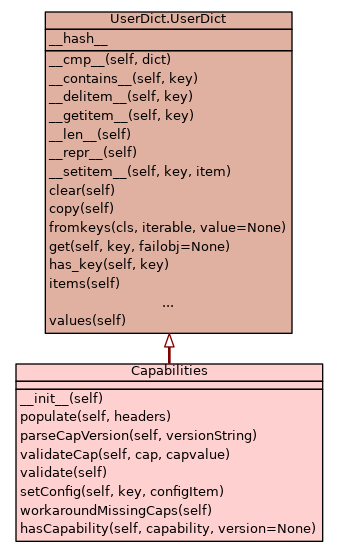
| Trees | Indices | Help |
|---|
|
|

|
|||
|
|||
|
|||
|
|||
|
|||
|
|||
|
|||
|
|||
|
|||
|
Inherited from |
|||
|
|||
|
Inherited from |
|||
|
|||
|
Inherited from |
|||
|
|||
|
Checks if the server supports a capability and optionally a version. Returns True or False. This complements the neededCaps mechanism provided by this module. Using hasCapability makes it easier to do something only if the server supports it or to put workaround code in the user of this class. The neededCaps mechanism makes it easier to put workaround code in this module, which makes sense if it is to be shared. 'capability' should be a string such as 'registration.foobar'. It can be a capability in 'neededCaps' above or one that isn't there. 'version' can be a string (where isdigit() is True) or an int. |
| Trees | Indices | Help |
|---|
| Generated by Epydoc 3.0.1 on Wed Mar 4 07:37:39 2020 | http://epydoc.sourceforge.net |